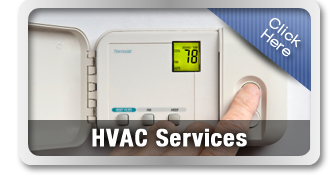Benefits of Installing a Home Water Softener System
If you live in New Jersey and have hard water there are many reasons to add a softening system to your home. When water has a high content of minerals it is considered hard water. Most commonly this means that there will be high amounts of dissolved calcium and magnesium. Water which is free of minerals other than sodium is considered soft water. When a home has a water supply that is hard there are many negative consequences including soap or shampoo that does not lather well, clothes coming out of the laundry looking dingy, bathroom fixtures which are left with chalky rings, clean glasses that will still show spots and water using appliances like coffee makers suffering from shortened lives.
In some areas chemicals are added to water on a city or district wide basis to soften water before it reaches household pipes. In an area where this is not done it is up to the homeowner to invest in a water softening system. There are a number of different types of waters softeners for home including reverse osmosis, ion exchanging, chemical, magnetic and electric water softening system installations. Some water softeners will increase sodium levels which is not healthy for some people with heart issues. It is therefore important to choose a water softening system that will best work on the particular water hardness in your areas as well as any special needs you might have.
There are many conflicting claims regarding water hardness and health. Some studies have shown that hard water lead to some cardiovascular illnesses in men. The World Health Organization says that there is no correlation between water hardness and adverse health effects, that these studies had inadequate data.
There is little argument on the positive effects that installing a water softening system will have on washing dishes and doing laundry. Hard water prevents the lathering in soaps and detergents. When water is softened the richer lathers returns, clothes rinse cleaner and the amount of expensive detergents used can be reduced. In dishwasher hard water leaves spotting and residue on glasses and dishes as they dry. The mineral residue that is found on bathtubs or shower walls also is left behind on skin and hair. When a water softening installation is completed hair will feel softer and skin cleaner that it had previously. There is an ecological benefit to be found in the reduction on water usage that follows a change to softer water as well as the reduction in detergents and soaps.
Appliances that use water such as coffee makers, water heaters or even tea kettles will have much longer life spans after there a water softening system is installed. Scaling which is a deposit of calcium and magnesium is left behind as water is heated in these appliances. Pipes can become clogged with this scaling as well which can cause reduced water flow and eventually may lead to pipes needing to be replaced. While there is an expense that must be paid to install a water softener there is tremendous savings that can be realized by not having to repair or replace these items.
Article Source: http://EzineArticles.com/?expert=Pablo_Olascoaga
Timothy Clark is the Marketing Director for ConstructionDeal.com – a handy & Free online resource for matching Contractors to Homeowners who have building, remodeling, or home repair projects.





